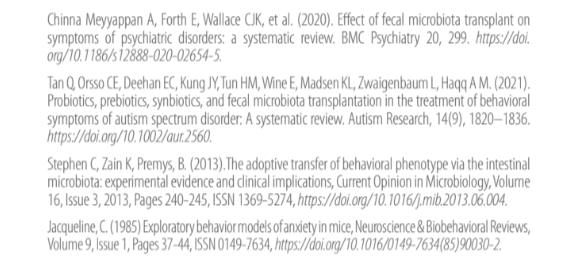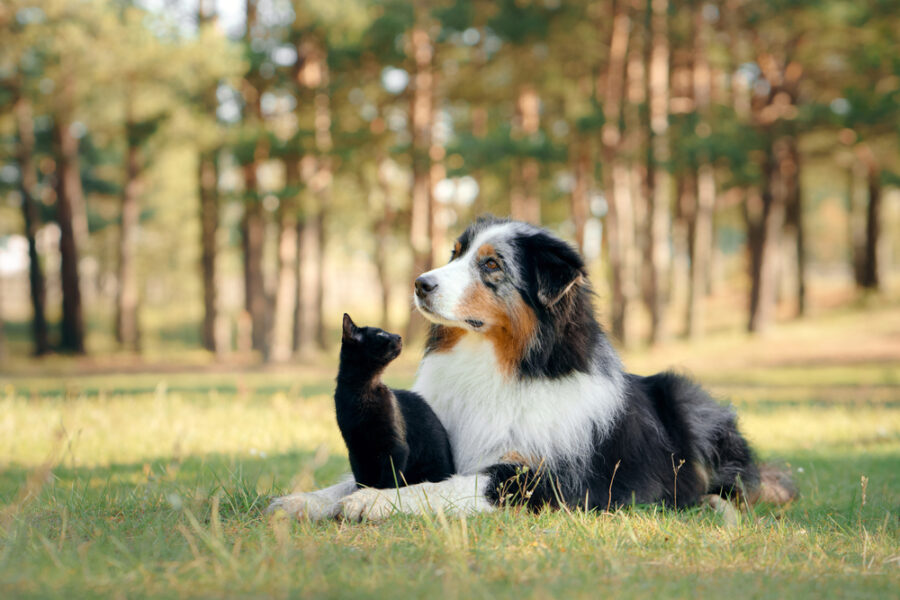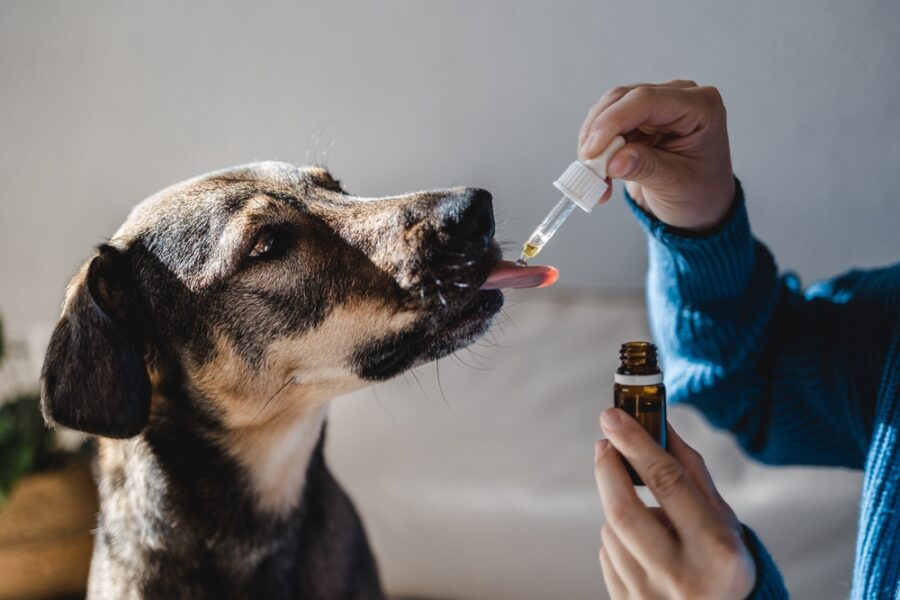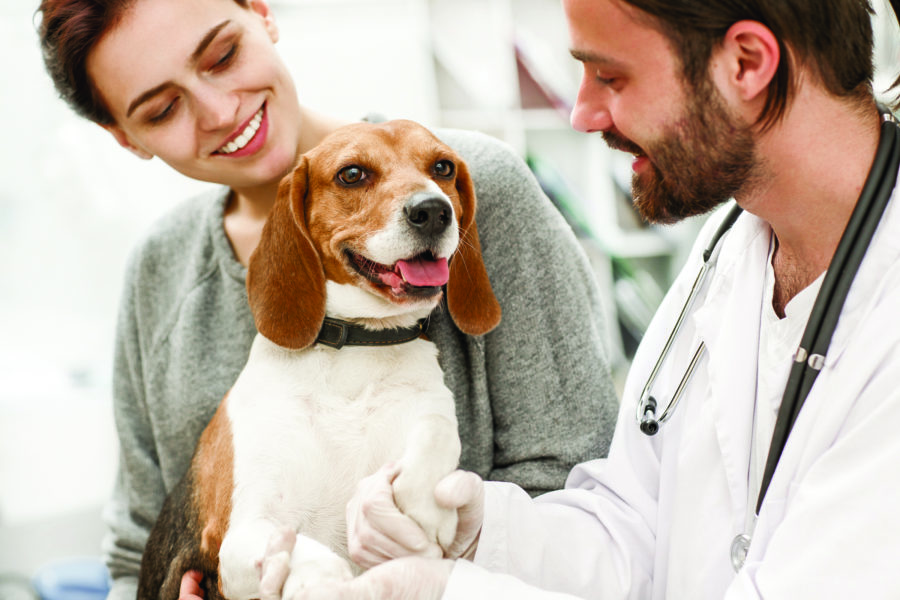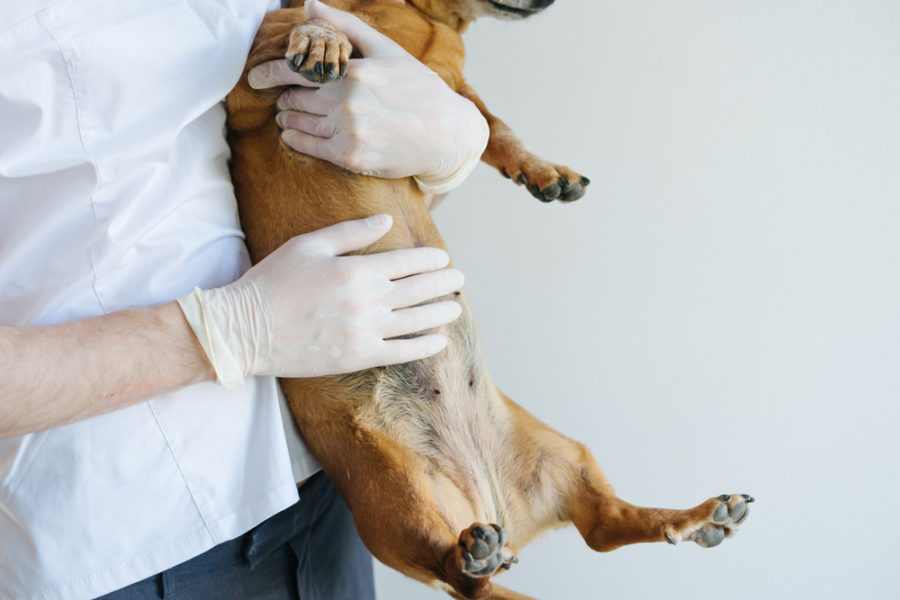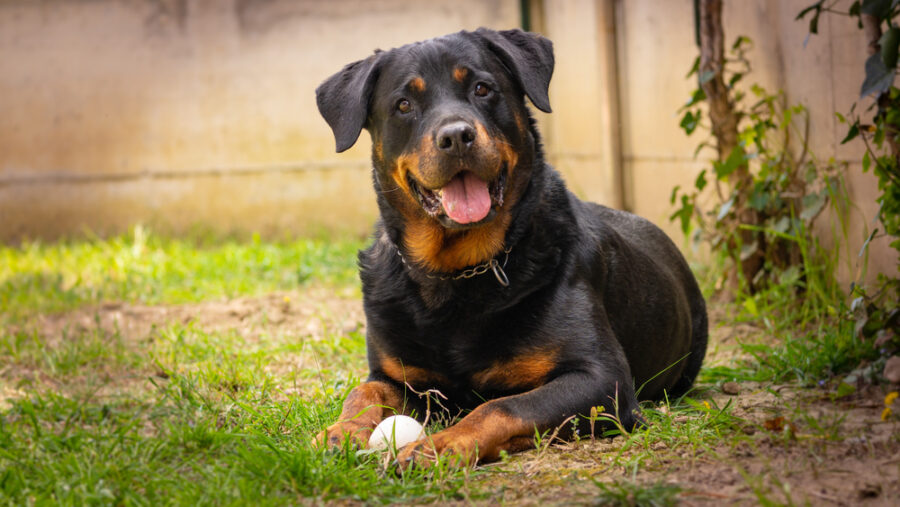We’ve learned a lot about the gut microbiome over the past 20 years, and important discoveries are still being made. This article focuses on the gut-brain connection and how MBRT can improve mental health and behavior in dogs and cats.
The gut-brain connection is now a real area for scientific research. Since 2012, Microbiome Restorative Therapy (MBRT) has made positive changes in the mental health and behavior of our animal patients, which has been so rewarding. Lets reflect on some of the early, and more recent, cases demonstrating the gut-brain connection, and how healing the microbiome improves behavior in dogs and cats.
CASE STUDIES
ARCHIE AND AGATHA RELIEVING AGGRESSION
Archie and Agatha were Wire Fox Terriers and litter mates, both diagnosed with immune endocrine imbalance. Allergy testing using applied kinesiology along with food elimination kept Archies GI tract in check, yet he exhibited severe aggression, especially toward Agatha. He would attack her throat and they would both end up in the ER with multiple wounds.
His thyroid and cortisol levels were monitored using Plechners testing. After he had his first MBRT transplant, his behavior changed in 30 hours. He lost his anxiety and aggressive behavior and was grooming his sister, cleaning her eyes and ears. This was the litmus test that he was in balance. Archie had acquired the nurturing qualities of the donor, who was a loving mother dog. He could also eat foods that normally gave him loose stools.
He did really well until he was given his monthly heartworm medication (Interceptor). One day later, he returned to his former behavior; he attacked Agatha and they ended up in ER again. After another MBRT, his affectionate and loving behavior returned. The implication here is that heartworm preventatives, as well as flea and tick products, kill off some of the gut microbiome.
Archie had 12 MBRT, then was given a pregnant poop (poop from a pregnant donor) and regained a lot more balance. The pregnant poop seemed to carry the most balanced diversity of bacteria he needed.
MBRT CAN ALSO H AVE AN IMPACT ON HORMONES & SEXUAL BEHAVIOR
1. Mojo was a Maine Coon cat with atopic dermatitis and recurring struvite crystals who lived in an E-collar for 2½ years. He had scabs and bald areas during most of that time. He had been neutered as a nine-week-old kitten. Mojo had been on a range of medications Ketaconazole, Revolution, Tresaderm, Mometamax, TrizEDTA ear, Triamcinalone, Cyclosporine, and Convenia. He displayed some aggressive behavior with his feline housemate, Muffin.
We gave Mojo MBRT when he was seven years old. He was started on a raw food diet two months before. He was also started on gut support, including Epizyme, Nutrigest, Colostrum, Rx Vitamin Ultra FA, Standard Process canine immune support, and our MASH mix. We gave him an oral piece of stool from my donor cat. Trapper, who was just one year old and had just been neutered, so the hormones in his body were those of an adult intact male. Mojo was also given LM 1 Thuja due to being over- vaccinated, and for detoxification.
The owner called two days later to say Mojo had stopped itching after 2½ years. She called again five days later and reported that his fur was coming back in areas where he hadnt had any for more than two years. She also said he was happy and more playful.
After five weeks, the owner called and requested another piece of poop for Mojo to take orally, to see what other changes would occur. Since that second fecal transfer, he became more playful, curious and independent. He was playing and eating nicely, less aggressive, and more affectionate.
Five weeks after the second MBRT, Mojos owner called again and asked for a third one.
She was a scientist and wanted to see how good he could get. Two days after the third fecal transplant, she called to announce he had a problem and thought it was his anal glands. She brought him in, where we found the glands were not impacted. Upon closer explanation, along with the owners description of his behavior, we realized Mojo was sexually attacking her arm and trying to hump it. He was acting like a male cat who was younger and sexually active.
The owner continued to give Mojo fecal transfers from a friends young female cat every one to two weeks. He has been less aggressive, and his skin has stayed healthy; when he gets a slight itch around his ears she puts on his E-collar, cleans the area with green tea, and it resolves.
The hormonal response from the MBRT showed up in the way Mojo regained his sexual behavior, and also became happier.
2. Baxter was a 14-year-old, neutered, male Lab shepherd cross who presented with liver cancer and was recommended for euthanization. We started giving him ozone therapy, MBRT, acupuncture and other holistic support. Baxter regained a lot of his energy and was very functional. Then he had a sudden abdominal bleed from the liver tumor and crashed. The emergency clinic told his owner that he should be euthanized.
As his liver enzymes went up to 5,000, we performed hyperbaric, oxygen, ozone therapy, acupuncture, and homeopathy. All these alternative tools got Baxter through this crisis, and he was actually regaining his strength. We decided to give him a rectal fecal transplant, fresh from my own dogs who were in heat. Two days later, at almost 15, he was humping his bed, something he stopped doing at the age of five. Again, hormonal expression within the microbiome is a real event. Baxter lived to 16½.
KAYLEE GETTING RID OF FEARS
Kaylee, a six-year-old beagle mix, had hemangiosarcoma in her abdomen and her right hind leg. She had been on antibiotics and pain medications and was recommended for euthanasia because she could no longer be managed for pain and was going to die within days.
After treatment including MBRT, ozone therapy, UVBI, gut and immune support, the change in Kaylees health status was nothing north of a miracle. Two days after treatment, her abdominal swelling went down and she no longer had pain in either her abdomen or her leg. But most amazing was the complete change to her personality. For four years, she had been a seriously anxious and clingy dog, like Velcro, never interested in chasing vermin and scared of water and puddles.
After the MBRT, she was jumping and playing in the lake, going through puddles, chasing squirrels and chipmunks, and being really playful and happy. She started digging holes, which she had never done before, and was smiling. She was acting like the crazy, smiling pup (Vienna) from whom she got her microbiome transplant.
Kaylee lived another six years with that same energy and zest for life, and became a therapy dog for the elderly. Her outgoing spirit and normal beagle behavior showed her owner she was much happier. She later died after starting conventional chemotherapy for lymphoma.
TOBER ESTABLISHING CONFIDENCE AND HAPPINESS
Tober, a ten-year-old spayed calico cat, suffered with diarrhea for years, with up to ten stools a day spraying the litter box. She endured extensive ultrasound, blood work, fecal exams, and years of on and off Metronidazole. This cat appeared very thin and fragile.
Twenty-four hours after MBRT, Tobers stools were normal, and the cat that used to hide in the basement and was afraid of the dog was sitting confidently on the couch upstairs and was playing with the dog.
Tober is being maintained on a high quality, protein-specific raw diet, and occasionally gets MBRT, as she has also tested positive for immune endocrine issues.
Her owner said when he picked her up she always felt like a piece of paper, yet just three days after the MBRT, she had some body strength and seemed so much happier.
Seven years later, Tober continues with her contented demeanor, although she became hyperthyroid at 17.
DANTE ELIMINATING ANXIETY AND AGGRESSION
This dogs owner said he was blinded by aggression and anxiety, and she wanted to have him euthanized. Although she had been working with a trainer, and Dante was a little better, she was giving up as it was too dangerous.
When Dante entered the exam room, he tried to attack me and even attempted to jump into my lap and bite my face. All attempts to talk to him through his intense anxiety was very hard, even as a Fear Free doctor.
Dante was given a Plechner test, UVBI, rectal ozone and MBRT, vitamin C, D, and B-complex, and nutritional support. He experienced pain from the vitamin shot, and one day of bloody diarrhea, suspected as being a detox from years of antibiotics and Prozac.
His owner reported that Dante used to focus on the front door for hours, barking if anybody came up to it. This behavior dissipated. As well, the sclera of his eyes had always been slightly yellowish but were now white. Dante was able to pay attention to his owner, and no longer tried to kill every dog on a walk.
Changing his microbiome and putting him on thyroid meds made him 1,000% better, said his owner.
We have so much more to learn about all the gut-brain connections, and the importance of preserving and caring for this microbiome. We also need to do more research on the gut-thyroid relationship. In 2000, there was just one research article on the microbiome; in 2017, there were 17,000. As of April 2023 there were 250,000 PubMed research articles on the microbiome! This is the new frontier, and hopefully veterinarians are able to preserve it and find ways to help animals heal not just physically, but mentally and behaviorally as well.
